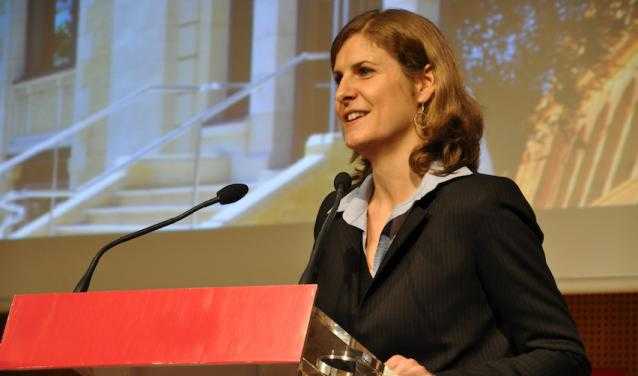Home>Dual Campus: 3 Questions on Hybrid Teaching

11.09.2020
Dual Campus: 3 Questions on Hybrid Teaching
After a a swift transition online due to the Covid-19 crisis last spring semester, the fall semester is starting at Sciences Po on a new "dual campus" model, with courses reinvented and taking on new formats. A few days before the start of the academic year which is set for 14 September 2020, we interviewed Delphine Grouès, Dean of the Institute for Skills and Innovation, on the pedagogical innovations of this new dual campus.
What is a “hybrid teaching method”?
Delphine Grouès: The principle of hybridity as it is developed at Sciences Po is not just a mix between face-to-face and remote teaching, or between real-time and asynchronous class time. Hybridity is also in the diversity of methods and activities, the multiplicity of modes of interaction, and the integration of specificities in service of a common institutional project. The outline of each and every programme we offer has been reviewed in its structure in order to integrate redesigned training and creative approaches.
Are all courses going to be taught in a “flipped classroom”?
DG: The well-known “flipped classroom” method is one of the interesting formats for this kind of pedagogy: it consists in providing learning resources beforehand and then devoting class time (whether remote or in-person) to interactions (discussions, role-playing scenarios, other structured activities). But this is not the only possible format. There are also “reversed classrooms”, which go further by putting the students in the role of the teacher, in which they produce material and present it in class, thus developing their critical thinking, selection and analytical skills and ability to restitute knowledge. We propose a variety of formats and methods to professors: it's up to them to choose the one that suits them best for their course. This weaving of diverse educational methods directly linked to the course objectives and programmes is one of the keys to impactful and effective teaching.
What support do you offer professors?
DG: As soon as Sciences Po was closed for the lockdown, the Institute of Skills and Innovation began working on increasing our support systems and guides for professors and pedagogical teams. We relied on past experiences and our team’s expertise to offer diversified support either through individualized follow-ups for professors who requested it or through group training. We have also offered educational guides for the deployment of hybrid pedagogy, listing a number of tips and tutorials for autonomous learning adapted to each course, and sharing instructive and inspiring initiatives led by Sciences Po professors. The preparation for the fall semester, the foundations of which are a renewed educational and digital experience, takes into account the experience of the previous semester, its positive aspects as well as the in-depth studies it requires and the questions it raises. We have worked hand-in-hand with the teams of the various training programmes and also with our research departments to always be as close as possible to students’ needs, to propose adapted solutions and to integrate these various initiatives into a common institutional objective. For example, we have redesigned in depth the course layout so that it includes several different sequences, with times for the transmission of knowledge, other times dedicated to group work, Q&A sessions, etc. This helps keep students’ attention and allows them to interact with their peers and diversify their skills.
What is the major challenge of this fall semester?
DG: One of the main challenges was to anticipate the design and support of an academic offer that would compensate for the inability of some students and professors to be physically present on the campuses, while meeting the aspirations of those who would be. We started preparing for this in the spring, in order to multiply teaching formats, to develop skills related to face-to-face and remote relationships, to exchange views and to find a friendly atmosphere in a modified educational setting. We collaborated on this closely with other departments, such as the IT Services Department and the library. This strategy is perfectly in line with the dynamic mission that Sciences Po has carried since its creation, which is based on the principle of permanent reinvention and offering a high quality education for all, whatever their situation, and using pedagogical methods that support collective intelligence, cooperation, and collaboration.
More information